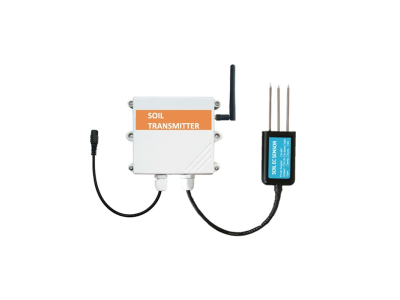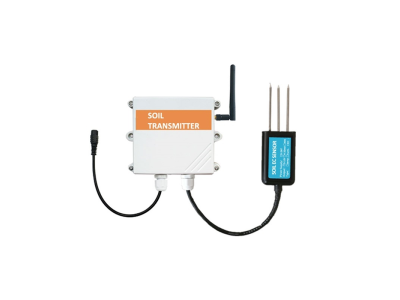Precision agriculture, also known as smart farming or digital agriculture, is transforming the way we cultivate crops and manage agricultural systems. By leveraging advanced technologies and data-driven approaches, precision agriculture aims to optimize resource allocation, increase productivity, and reduce environmental impacts. One crucial component of precision agriculture is soil sensor solutions, which provide real-time data on soil conditions. In this article, we will explore how soil sensor solutions are revolutionizing precision agriculture and contributing to sustainable and efficient farming practices.
What are Soil Sensor Solutions?
Soil sensor solutions encompass a range of technologies designed to measure and monitor various soil parameters. These sensors can provide data on moisture levels, temperature, nutrient content, pH levels, salinity, and compaction, among other factors. They are typically installed in the field, either as standalone devices or as part of an integrated system. Soil sensor solutions enable farmers to gather accurate and timely information about soil conditions, which is essential for making informed decisions related to irrigation, fertilization, disease prevention, and crop management.
Real-Time Monitoring and Decision-Making:
One of the significant advantages of soil sensor solutions is the ability to monitor soil conditions in real-time. Traditional farming practices often rely on manual observations or periodic sampling, which may not capture the dynamic nature of soil variability. Soil sensors provide continuous data, allowing farmers to closely track changes in moisture levels, nutrient availability, and other critical parameters. This real-time information enables farmers to make precise and responsive decisions regarding irrigation scheduling, nutrient application, and other agronomic practices.
Efficient Resource Management:
By providing accurate and localized information, soil sensor solutions help optimize resource management in agriculture. Water is a scarce resource in many regions, and improper irrigation practices can lead to water wastage and environmental degradation. Soil sensors measure soil moisture levels, enabling farmers to irrigate only when necessary and avoid overwatering. This not only conserves water but also prevents waterlogging and root diseases caused by excessive moisture. Similarly, nutrient sensors allow for precise fertilization, minimizing nutrient runoff and reducing the risk of groundwater contamination.
Improved Crop Health and Productivity:
Optimal soil conditions are vital for plant health and productivity. Soil sensors provide insights into soil nutrient levels and pH, which are crucial for determining appropriate fertilization strategies. By maintaining the ideal nutrient balance, farmers can promote healthy plant growth, enhance crop quality, and maximize yields. Soil sensors also help identify early signs of stress or disease, allowing for timely interventions to prevent crop losses. With better understanding and control over soil conditions, farmers can create an optimal growth environment for their crops.

Site-Specific Management and Precision Application:
Soil sensor solutions facilitate site-specific management practices, tailoring agricultural interventions to specific areas within a field. Instead of adopting a blanket approach across the entire farm, farmers can use soil sensors to identify spatial variations in soil properties. This information enables them to implement precision application techniques, such as variable rate irrigation or fertilization. By applying resources precisely where they are needed, farmers can optimize inputs, reduce costs, and minimize environmental impacts. Site-specific management also contributes to better overall crop uniformity and reduces the risk of under or over-application of inputs.
Data Integration and Predictive Analytics:
Soil sensor solutions generate vast amounts of data, which can be integrated with other digital tools and technologies to gain deeper insights. Data analytics and machine learning algorithms can process and analyze this information to identify patterns, correlations, and predictive models. For example, by combining soil moisture data with weather forecasts, farmers can anticipate rainfall events and adjust irrigation schedules accordingly. Such predictive capabilities improve operational efficiency, reduce risks, and support proactive decision-making in agriculture.
Sustainability and Environmental Stewardship:
The integration of soil sensor solutions in precision agriculture contributes to sustainable farming practices and environmental stewardship. By minimizing resource wastage, optimizing inputs, and reducing chemical applications, precision agriculture helps mitigate the environmental impact of farming. Soil sensors enable farmers to adopt a targeted approach, minimizing the use of water, fertilizers, and pesticides to levels that are environmentall






